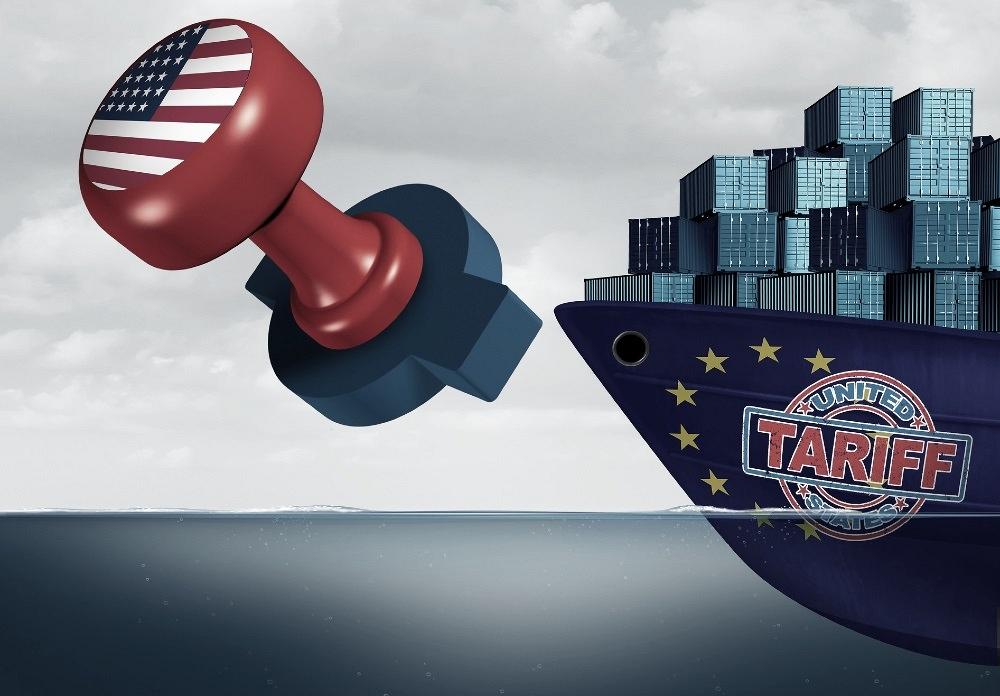While the Biden administration has reversed multiple Trump-era policies, it has not been in any rush to revise the Section 232 tariffs. That might change, however, with the European Union on the verge of escalating retaliatory tariffs on US products, according to market participants.
Starting on June 1, the EU will increase the duties – first imposed in 2018 – from 25% to 50% on a wide array of US imports ranging from flat-rolled steel to Jack Daniels whiskey unless the US removes the EU from the 232 tariffs.
There is some question, however, about whether the EU’s tariff increase will occur in June after EU trade chief, Valdis Dombrovskis, suggestedthan the blocand the US suspend tariffs for six months.
“Logically, increasing tariffs provides some leverage by putting additional pressure on the US,” John Foster, chairman of the American Metals Supply Chain Institute – which represents metals importers – told Fastmarkets.“[Senator] Mitch McConnell [Republican, Kentucky] is certainly one senator who will want to see a resolution to help the whiskey producers in his state. It’s political as much as economic.”
European leaders have repeatedly said that the Section 232 tariffs are especially galling because the justification for the tariffs was to prevent imports that impair national security. This has added to the pressure to the Biden administration to find an accommodation, especially since the president has emphasized the importance of the North Atlantic Treaty Organization.
“They can’t realistically expect to keep this high-tariff policy adopted by the Trump Administration in place and still expect to repair the damage to our trade relations with our allies caused by these actions,” Rufus Yerxa, president of the National Foreign Trade Council, told Fastmarkets. The National Foreign Trade Council is a business-lobbying group that leads a coalition of almost 40 different industry and agricultural associations opposing the steel and aluminum tariffs.
Following the implementation of the Section 232 tariffs in June 2018, Fastmarkets’ daily steel hot-rolled coil index, fob mill US surged to $45.84 per hundredweight ($916.80 per short ton) – a nearly 10-year high at the time. The index was last calculated at an all-time high of $67.75 per cwt on Monday April 12.
A move from the tariffs to a quota may be an example of what to expect, some sources said. South Korea, Argentina and Brazil moved from tariffs to steel quotas in June 2018.
“We have allies and adversaries, and the European Union is an ally,” Foster said. “The US found a way to work with other allies such as South Korea by moving to a quota. I can see them coming to a similar solution [for the EU].”
Not all sources believe that the EU will be mollified by a move to quotas. An accord might take more time as the Europeans demand greater access to US metals markets, sources said.
“A quota isn’t a mitigation, a quota is another restriction,” a trade lawyer said. “The way to mitigate and eliminate the risk is to eliminate the cause. Do I think [the Biden administration will] talk to the EU? Yes, and I expect the EU to be tough on them.”
A majority of senior-level executives in steel and other metals industries expect President Biden to rescind the Section 232 tariffs, according to Headwall Partners’ 2021 Steel & Metals Outlook Survey released on March 17. The survey found that 54% of respondents believe that Section 2332 will remain in place for less than two years.
The Biden administration hasn’t signaled that it will make any changes for the short term, with its focus currently on strengthening US industry. Steel companies and workers applauded when Biden signed an executive order strengthening “Buy America” laws during his first week in office, and when Commerce Secretary Gina Raimondo called Section 232 “effective” on March 4.
“I don’t expect any changes in the near future,” an East Coast steel tradersaid. “Gina Raimondo, the new Commerce Secretary, has expressed the need to protect US industries against unfair trade, and at most she may want to make some adjustments.”
The United Steelworkers union joined forces with the American Iron and Steel Institute (AISI), the Steel Manufacturers Association, the Committee on Pipe and Tube Imports and the American Institute of Steel Construction to urge the Biden administration to maintain Section 232 steel tariffs.
“We don’t see any reason to fundamentally modify Section 232 at this time,” Kevin Dempsey, president and chief executive officer of AISI, told Fastmarkets. “Global overcapacity has fueled surges of imports that have hurt the US steel industry. So, global overcapacity is a national security threat. Section 232 allows us to deal with the surges of imports.”
The American steel industry has also looked to tighten the Section 232 tariff exclusion process, which could further curb imports. Steel industry groups united to reverse changes that the Commerce Department enacted in December, which were aimed at streamlining general approved exclusions.
“Section 232 should not be changed,” Dempsey said. “It should be kept, and in fact the 232 exclusion process needs to be tightened.”
Abby Verret in Seattle contributed to this report.
April 14, 2021 13:25 PM By Mark Shenk






